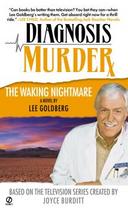A friend of mine told me an agent horror story today. A few years ago, his publisher accidentally sent him, instead of his agent, royalty statements on his book. The royalties showed that he’d earned $350,000… but his agent had sent him a false statement that said he’d earned only $11,000. My friend sued his agent, the case dragged on for years, and (for reasons I don’t understand) the parties involved ended up settling for about ten percent of what he was owed.
This story reminded me of a couple of other recent agent scandals. This one was covered by the Sacramento Business-Journal:
Celebrated local chef Biba Caggiano writes cookbooks, yet her
relationship with her literary agent has turned into the stuff of
detective novels.Caggiano is seeking more than $400,000 and alleges that Los
Angeles-based Maureen Lasher Agency kept two advances that were
supposed to go to her. The suit says the agent
even attempted to pass off an incomplete Italian recipe book, written
by someone else, as Caggiano’s work.
Caggiano — who owns Biba restaurant
in midtown Sacramento and once had a cooking show on cable’s The
Learning Channel — learned of the advances only when her publisher
contacted her in July about two books for which it had paid advances of
$106,250 and $143,750, the suit says. It was, Caggiano alleges, the
first she heard about the advances or the negotiations for two new
cookbooks.
Advances and book royalties go to the agent and are then disbursed,
along with financial records, to the author. Caggiano says she hasn’t
received any checks or any accounting from her agent. The suit says the
amount owed Caggiano exceeds $400,000.
A spokeswoman for publishing house Harper Collins said that the
company couldn’t comment about the issue and that it is a matter
between Caggiano and her literary agent. In addition to Caggiano, New
York-based Harper Collins has a stable of best-selling cookbook
authors, including Julia Child, Emeril Lagasse and Marcella Hazan.
In October of 2000, unbeknown to Caggiano, Harper Collins delivered
$106,250 as an advance for a cookbook; Caggiano was not paid any part
of the advance nor was she made aware of its existence, according to
the suit. A second advance of $143,750 was paid by the publishing house
for a second book, and again, Caggiano says, she was not paid any of
the advance or made aware of it.
Then, the suit states, Lasher "attempted to deliver to Harper
Collins an incomplete and unauthorized manuscript" without Caggiano’s
knowledge or consent.
The agent hasn’t responded to calls or letters about the incidents,
the suit states. The suit seeks an accounting of Lasher’s books,
records, receipts and disbursements.
This was no fly-by-night agent, either.
Lasher’s clients included Barry Manilow. Another well-known case of agent fraud involved Marcie Wright who, at one time, represented DESPERATE HOUSEWIVES creator Marc Cherry as well as many other top screenwriters and writer/producers.
According to Variety, she told screenwriter Robert Kuhn that Castle Rock never paid him for a rewrite he did on a script, and that DreamWorks wasn’t going to pay him for a "quick polish" on another screenplay he’d written. The truth was that Castle Rock paid him $150,000 for the rewrite and DreamWorks kicked in $87,000 for the polish.
Kuhn wasn’t the only client she was robbing. Her client Marc Cherry made a $100,000 pilot script deal with Paramount Network Television in 2001 that was later tabled.
Wright allegedly went to studio and said Cherry wanted to
settle out of the deal and walk away rather than pick it up at a later
date. The studio agreed and cut a check for $25,000, made out to "Marc
Cherry, c/o the Wright Concept," that never made it to Cherry.
Wright was arrested on grand theft and fraud charges and ultimately pled no contest to embezzlement, agreed to pay some $270,000 in restitution to her clients,
and serve 12 months in county jail. The amount ballooned to nearly $500,000 with interest and legal fees. She paid the restitution and was released in September after serving 160 days in prison. She is on three years probation. According to media reports, Wright is forbidden
from holding a personal checking account, may not act in any fiduciary
capacity, and is currently "undergoing psychological treatment."



